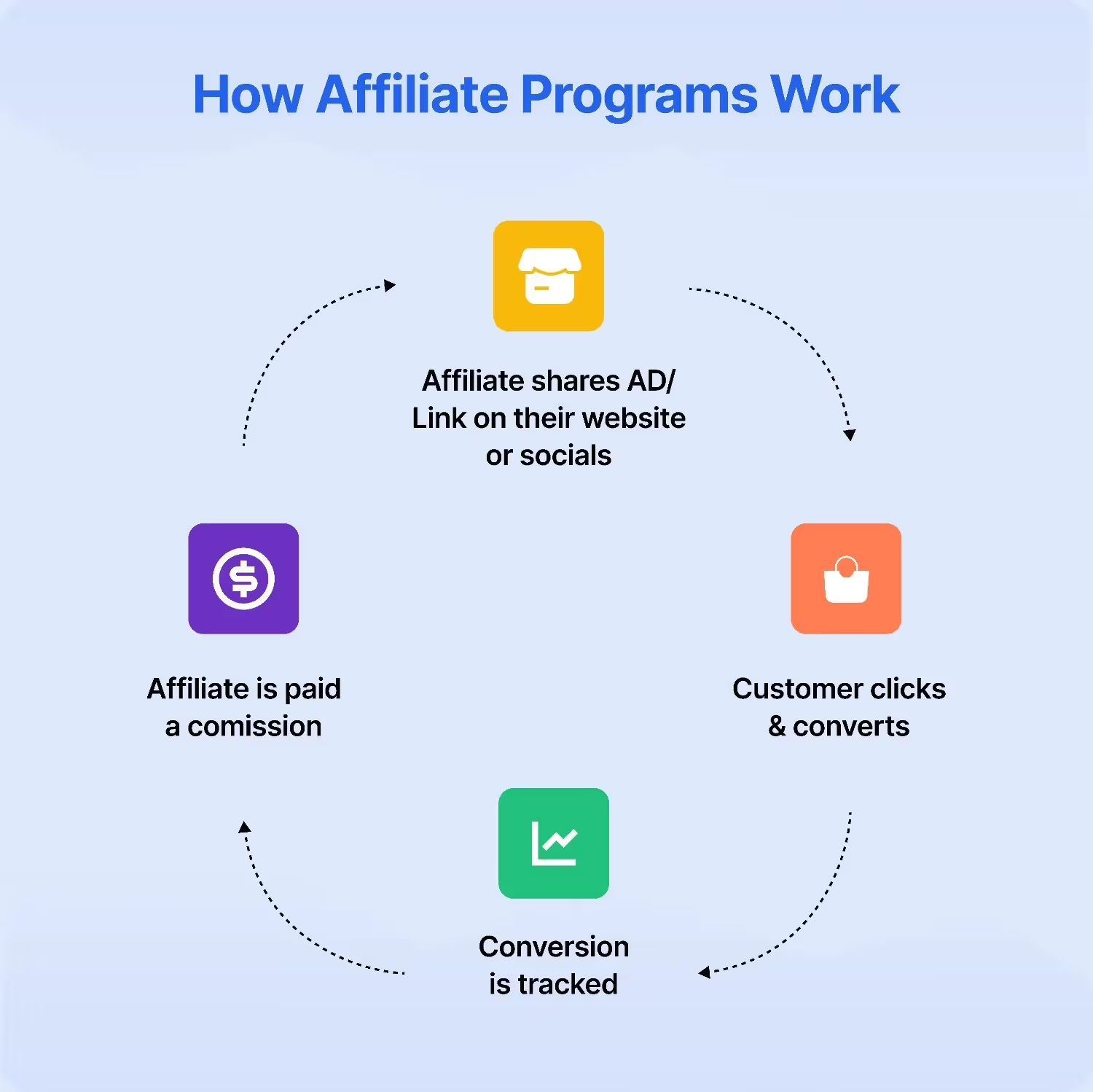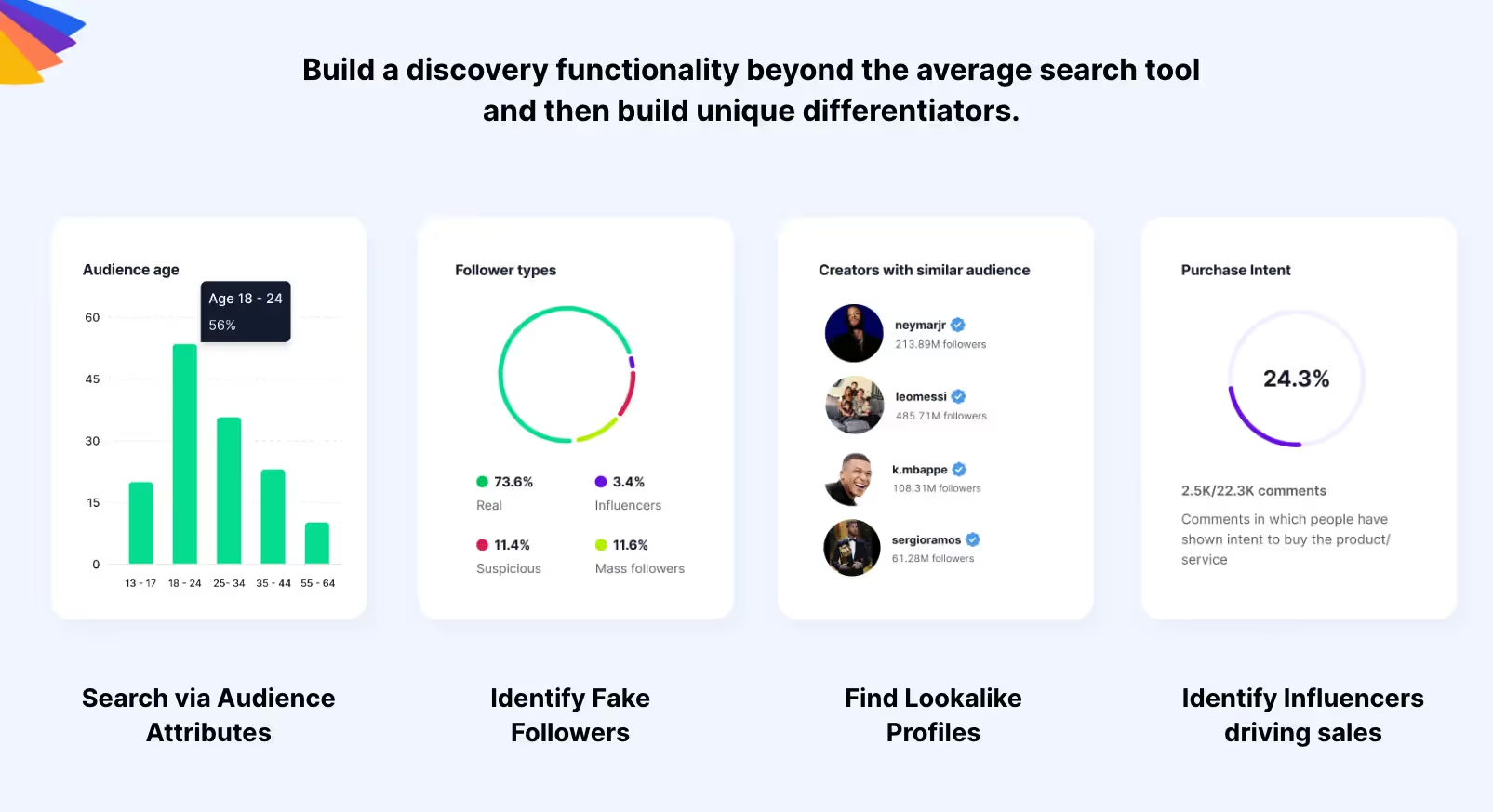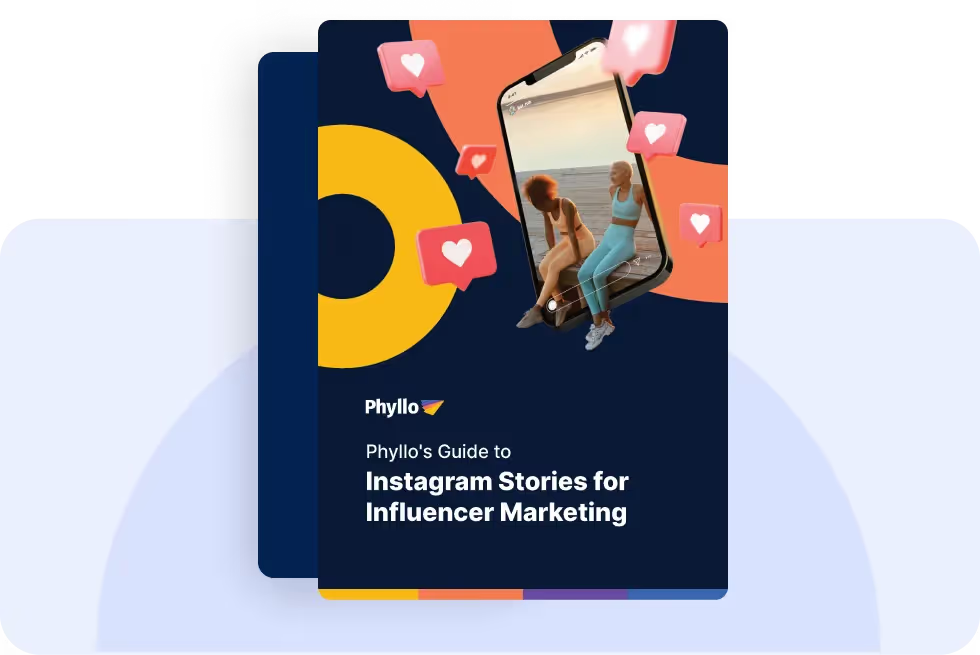Influencer marketing is a hot topic in digital marketing, with billions of users logging onto social media platforms daily. This offers an unprecedented opportunity to reach a vast audience. In fact, 93% of marketers have used influencer marketing, highlighting its widespread adoption.
However, affiliate marketing, though less discussed, remains a powerful tool. U.S. spending on affiliate marketing is projected to reach $8.2 billion by 2024, underscoring its continued relevance. Affiliates use unique affiliate links to track revenue and generate sales, making it easier to measure the effectiveness of each affiliate’s efforts. These affiliate links are crucial for tracking sales, measuring performance, and compensating affiliates based on their referrals.
Both influencer and affiliate marketing effectively educate your target audience and convert them into customers. Understanding their differences is key to leveraging them for your business growth. It’s not about sticking to one strategy but knowing when to use each to meet your current goals.
Let’s explore affiliate marketing vs. influencer marketing—how each strategy works, when to use them, and how to leverage them for maximum exposure and eCommerce growth.
What is Influencer Marketing?
Influencer marketing is a strategic approach where brands collaborate with influential individuals on social media to promote their products or services. Influencer marketing campaigns can focus on increasing brand exposure by enhancing brand awareness and credibility. These influencers, who have a significant and engaged following, can sway their audience’s purchasing decisions through authentic and relatable content.
.png)
Influencer marketing campaigns can also focus on increasing brand awareness by improving brand exposure and generating more web traffic. Unlike traditional advertising, influencer marketing leverages trust and credibility built by influencers within their niche communities. This method allows brands to reach target audiences more effectively, often resulting in higher engagement and conversion rates. According to a 2023 report by Influencer Marketing Hub, the influencer marketing industry is projected to grow to approximately $21.1 billion in 2024, reflecting its increasing importance in digital marketing strategies.
An example of successful influencer marketing is the collaboration between the fitness brand Gymshark and various fitness influencers.

By partnering with popular fitness personalities on Instagram and YouTube, Gymshark has managed to build a strong brand presence and cultivate a loyal customer base. These influencers create workout videos, share fitness tips, and showcase Gymshark’s apparel in their content, which resonates well with their followers.
This strategy has significantly contributed to Gymshark’s impressive growth, making it one of the fastest-growing fitness brands globally. A study by Mediakix found that Gymshark’s influencer marketing campaigns resulted in a 75% increase in engagement rates, demonstrating the effectiveness of leveraging influencers to drive brand awareness and sales.
Also read: How to find influencers on LinkedIn
Influencer Marketing Benefits
Here are some influencer marketing benefits:
- Increased Brand Awareness: Influencers can expose your brand to a larger audience, helping to increase brand visibility and awareness.
- Enhanced Credibility and Trust: Influencers have built strong relationships with their followers, and their endorsement can lend credibility and trust to your brand.
- Higher Engagement Rates: Content created by influencers tends to have higher engagement rates compared to traditional ads, leading to better audience interaction.
- Targeted Reach: Influencers often have a specific niche audience, allowing brands to reach their target demographic more effectively.
- Cost-Effective Marketing: Compared to traditional advertising, influencer marketing can be more cost-effective and provide a higher return on investment.
- Authentic Content: Influencers create authentic and relatable content that resonates well with their audience, making marketing messages more impactful.
- Improved SEO: Influencer collaborations can drive more traffic to your website, improving your search engine rankings.
- Conversion Rate Boost: Influencer recommendations can lead to higher conversion rates as followers are more likely to trust their suggestions.
What is Affiliate Marketing?
Affiliate marketing is a performance-based marketing strategy where businesses partner with digital content creators, known as affiliate marketers, to promote products or services. Affiliates, who can be bloggers, social media influencers, or other online content creators, promote the company’s products or services by sharing unique affiliate links.
Affiliate marketing tracks campaigns and measures success through unique referral links, ensuring that partners are paid for delivering actual sales results. When a customer clicks on these links and makes a purchase, the affiliate earns a commission. This method allows companies to leverage a broad network of marketers to reach new audiences and generate sales without upfront advertising costs. According to Statista, affiliate marketing spending in the United States is expected to reach $8.2 billion by 2022, showcasing its growing importance in digital marketing.

An example of successful affiliate marketing is the Amazon Associates program. Amazon partners with thousands of affiliates who promote various products on their blogs, YouTube channels, and social media platforms. By including affiliate links in their content, these affiliates earn a commission on every sale made through their referral, often streamlined with the help of referral tracking software. This strategy has helped Amazon expand its reach significantly, tapping into niche markets and diverse customer segments. A report by Business Insider Intelligence found that Amazon’s affiliate program contributed to a substantial portion of its online sales, highlighting the efficacy of affiliate marketing in driving revenue and increasing brand visibility.
Affiliate Marketing Benefits
Affiliate marketing offers several benefits for brands:
- Cost-Effectiveness: Affiliate marketing is a performance-based strategy, meaning businesses only pay for actual sales, making it a cost-effective approach. Affiliate sales are tracked through unique referral links, ensuring that commissions are only paid for genuine conversions.
- Increased Reach: Partnering with affiliates allows brands to tap into new audiences and diverse customer segments.
- Enhanced SEO: High-quality backlinks from affiliates can improve a brand’s search engine rankings.
- Improved Tracking: Unique referral links provide clear tracking of campaign performance and return on investment.
- Scalability: Affiliate marketing programs can easily scale by adding more affiliates to the network.
- Low Risk: Since payments are commission-based, there is minimal financial risk involved.
- Diverse Promotion: Affiliates use various platforms and content types to promote products, increasing the chances of reaching potential customers.
- Increased Sales: Effective affiliate partnerships can significantly boost sales and revenue for the brand.
Also read: The Ultimate Guide To Conduct Influencer Audience Analysis
Difference Between Influencer Marketing and Affiliate Marketing
Influencer Marketing and Affiliate Marketing are both powerful strategies used to drive brand awareness and sales, but they operate differently and serve distinct purposes. Influencer campaigns primarily focus on increasing brand awareness, fostering brand engagement, and directing traffic to the website, whereas affiliate campaigns are more performance-based and aim to drive direct sales.
Brands have control over an influencer marketing campaign, which involves strategic partnerships with influential content creators to promote products or services. These campaigns are effective for driving brand awareness, shaping public opinion, and achieving business-critical outcomes.
Influencer Marketing focuses on leveraging individuals with a large and engaged following on social media platforms to promote a brand’s products or services. The primary goal is to enhance brand visibility and trust through authentic and relatable content. Influencers create content that resonates with their audience, which can lead to increased brand loyalty and engagement. Compensation for influencers can be in the form of a flat fee, free products, or a combination of both, and it doesn’t necessarily depend on the sales generated.
On the other hand, an affiliate marketing campaign is a performance-based strategy where affiliates earn a commission for driving sales or traffic to a company’s website through their unique affiliate links. This method relies on the affiliate’s ability to market the product effectively to their audience. The primary goal here is to drive direct sales and measurable results, making it a cost-effective strategy for businesses. Affiliates are only compensated when their marketing efforts result in actual sales or conversions, which makes this approach low-risk for the company. An affiliate marketing campaign can take various forms and involves specific tools and objectives to track and optimize performance.
Affiliate Marketing vs Influencer Marketing
Combining Influencer Marketing with Affiliate Marketing
Integrating influencer marketing with affiliate marketing can significantly enhance your brand’s reach and conversion potential. Influencer marketing works by leveraging the trust and engagement influencers have with their followers, creating authentic connections with potential customers. By combining this with the performance-based rewards of affiliate marketing, you can ensure that influencers are motivated not only to promote your products but also to drive actual sales.
This hybrid approach allows influencers to share their genuine experiences with your products while earning a commission on any resulting sales. It maximizes the strengths of both strategies: influencers provide engaging content that builds brand awareness and trust, while the affiliate program tracks conversions and compensates influencers based on their performance. This dual incentive structure can lead to higher engagement rates and increased sales, as influencers are more likely to actively promote products they believe in and benefit from financially.
Also read: How to grow your brand with micro-influencers
How to Combine Influencer and Affiliate Marketing
- Identify the Right Influencers: Choose influencers whose audience aligns with your target market. Look for individuals who have a genuine connection with their followers and can authentically promote your products.
- Set Up an Affiliate Program: Create a structured affiliate program that offers attractive commission rates. Ensure that the program is easy to join and provides influencers with unique affiliate links and tracking tools.
- Provide Training and Support: Equip influencers with the necessary information and resources about your products. Offer guidance on how to create compelling content and effectively use their affiliate links.
- Track Performance: Use tracking tools to monitor the performance of your influencer-affiliate campaigns. Measure metrics such as click-through rates, conversions, and sales to evaluate the success of the strategy.
- Communicate and Collaborate: Maintain open communication with your influencers. Regularly update them on campaign performance and provide feedback. Collaborate on new ideas and strategies to continually improve the campaign’s effectiveness.
- Offer Incentives: Motivate influencers with performance-based incentives, such as higher commission rates for top performers or bonuses for reaching specific sales targets. This can further encourage them to actively promote your products.
Integrating Affiliate Marketing and Influencer Marketing with Phyllo’s APIs
Combining affiliate vs. influencer marketing can amplify your reach and boost your ROI. Phyllo’s suite of APIs offers a powerful solution to seamlessly integrate these two strategies. Here’s how Phyllo can enhance your affiliate and influencer marketing efforts:

Discover the Perfect Social Media Influencers
Phyllo’s Creator Search API allows you to filter through a massive database of over 400 million creators across platforms like Instagram, YouTube, TikTok, and LinkedIn. Use attributes such as demographics, interests, and affinities to identify influencers who align with your brand and target audience. This precision helps you find the ideal partners to promote your affiliate products effectively.
Gain Deep Insights into Influencer Marketing Campaigns
With the Profile Analytics API, you can dive into detailed performance metrics and audience insights of potential influencers. This includes recent growth statistics, audience quality, and a breakdown of real vs. fake followers. Understanding these metrics ensures you choose influencers whose audience engagement and quality match your campaign goals.
Tailor Your Content Strategy
Phyllo’s Content Fetching API provides access to an influencer’s current and historical content. By analyzing this data, you can tailor your affiliate marketing strategy to align with the influencer’s content style and performance. This alignment enhances the relevance of your affiliate promotions and increases their impact.
Match and Expand Your Audience
Utilize advanced filtering to find creators whose audiences closely match your target market. Filters such as engagement rates, performance metrics, and audience attributes help you ensure that your affiliate products reach the most receptive and relevant audience. Additionally, the Lookalike feature helps you discover new influencers with similar characteristics to your top-performing affiliates.
Ensure Real-Time Accuracy
Phyllo’s authentication and real-time data capabilities allow you to fetch accurate performance data and manage content publishing. This ensures that your affiliate marketing campaigns are based on up-to-date information and helps you track their effectiveness in real-time.
Streamline Campaign Management
Phyllo’s APIs offer functionality to publish content directly through influencer accounts. This streamlined approach simplifies campaign management and ensures that all content is consistent with your brand’s messaging.
By leveraging Phyllo’s comprehensive Creator Search, Profile Analytics, and Content Fetching APIs, you can effectively integrate affiliate and influencer marketing strategies. This integration not only enhances your campaign’s reach but also ensures you achieve optimal results from your marketing efforts.
Also read: Instagram Audience Demographics for Influencer Marketing Platforms
To Conclude
To conclude, affiliate marketing vs. influencer marketing presents two powerful strategies, each with unique strengths to enhance your brand's digital presence. Influencer marketing builds trust and engagement through authentic content, while affiliate marketing drives direct sales with a performance-based approach. Combining these strategies can maximize exposure and conversion rates. Utilizing tools like Phyllo's APIs helps streamline influencer discovery, gain performance insights, and manage campaigns effectively. The key to success is strategically leveraging both methods to meet your brand’s specific needs and goals, ensuring optimal growth and ROI.











.avif)
.avif)
.avif)